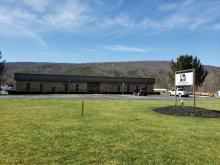Foray into Fiber Frontier for A Rural Virginia Cooperative
When he was a colonel in the Virginia Militia, George Washington is said to have visited “Craig’s Camp,” a mountainous frontier outpost in southwest Virginia near the border of what would later become West Virginia. After the Seven Years' War, farmers and tradesmen were drawn to the area, establishing a settlement known then as “Newfincastle.” Over the years, the “fin” was dropped and the town became New Castle, the seat of Craig County.
Today – with the Jefferson National Forest comprising half of the county, its scenic byways, access to the Appalachian Trail, old churches, and family cemeteries – Craig County and the surrounding region remains steeped in early American history. And now, thanks to the Craig-Botetourt Rural Electric Cooperative (CBEC), this corner of rural Virginia has established a forward-looking outpost of Internet connectivity, and a new fiber frontier that planners hope to expand across the seven counties that make up CBEC’s 650 square-mile service area.
The Bee Online Advantage

It was in 2018 when CBEC began to seriously consider building a broadband network to serve its 6,800 members because, as the co-op’s website puts it: “Our members are experiencing what originally created the electric cooperative in 1936 – a lack of service. They lacked electricity [85] years ago; now they lack high-speed Internet [access].”
That lack of high-speed Internet connectivity is becoming a thing of the past, at least for co-op members in Botetourt County who now have access to an emerging Fiber-to-the-Home (FTTH) service through a CBEC subsidiary known as the Bee Online Advantage.



